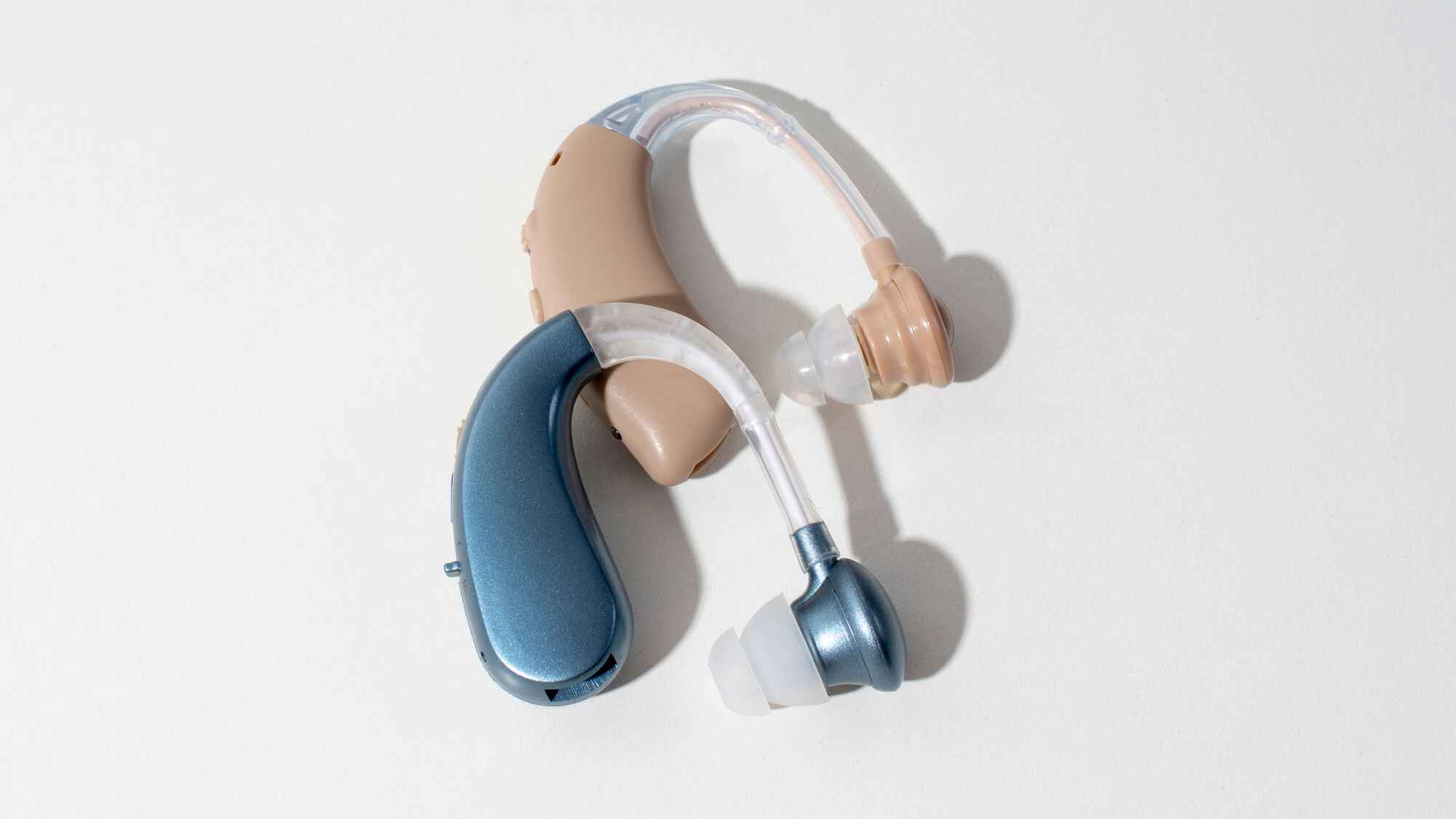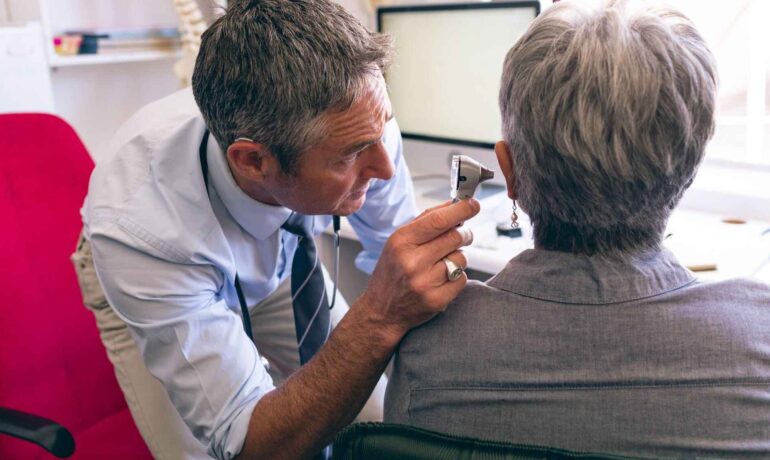As we age, our bodies naturally change, and one of the most common yet often overlooked issues is hearing loss. About one in three people aged 65 and older experience some form of hearing loss, and this number only increases with age. At Parindhevi Hospitals, we focus on providing the best care and treatment for our patients, helping them manage hearing loss effectively. In this blog post, we’ll explore the causes of hearing loss in older adults, its effects, and the treatments available at Parindhevi Hospitals.
What Causes Hearing Loss in Older Adults?
Hearing loss, also known as presbycusis, is a common result of aging. Over time, the hair cells in the inner ear, responsible for transmitting sound signals to the brain, can get damaged or die. This can make it harder to hear high-pitched sounds, understand speech, and respond to environmental noises. Several factors contribute to hearing loss in older adults:
- Natural Aging: Aging itself can cause gradual damage to the hearing structures in the ear.
- Loud Noise Exposure: Over time, repeated exposure to loud sounds, such as from work environments, music, or other sources, can damage the ear’s delicate structures.
- Genetics: A family history of hearing loss can increase the likelihood of developing hearing issues with age.
- Health Conditions: Chronic conditions like diabetes, high blood pressure, and cardiovascular diseases can contribute to hearing problems.
- Medications: Certain medications, including antibiotics and chemotherapy drugs, can cause hearing loss as a side effect.
How Does Hearing Loss Affect Seniors?
Hearing loss affects more than just the ability to hear. It can impact a senior’s overall health and well-being. Some common effects of hearing loss include:
- Social Isolation: Difficulty hearing can make conversations harder, leading to withdrawal from social activities and relationships.
- Cognitive Decline: Untreated hearing loss can contribute to cognitive decline and increase the risk of dementia.
- Depression and Anxiety: Struggling to hear and communicate can cause frustration, sadness, and feelings of loneliness.
- Safety Risks: Hearing loss makes it harder to detect important environmental sounds, such as alarms, sirens, or approaching vehicles, which increases the risk of accidents.

How Parindhevi Hospitals Diagnoses Hearing Loss
At Parindhevi Hospitals, we offer thorough hearing assessments to diagnose hearing loss in older adults. Our team of experienced audiologists uses the latest diagnostic tools to evaluate the degree and type of hearing impairment. The diagnostic process may include:
- Pure Tone Audiometry: This test measures the softest sounds you can hear at different frequencies.
- Speech Audiometry: This test evaluates your ability to hear and understand speech at various volumes.
- Tympanometry: This test checks the function of the middle ear and can detect issues like fluid buildup or ear drum problems.
Treatment Options for Hearing Loss in Older Adults
If you or a loved one experiences hearing loss, Parindhevi Hospitals provides a range of treatment options to improve hearing and enhance quality of life:
- Hearing Aids: These small devices amplify sound, making it easier to hear in various situations. Our audiologists customize hearing aids based on each patient’s specific needs.
- Cochlear Implants: For individuals with severe hearing loss who don’t benefit from hearing aids, cochlear implants are an option. This device bypasses damaged parts of the ear and directly stimulates the auditory nerve.
- Assistive Listening Devices (ALDs): These devices help individuals hear better in specific situations, such as during TV watching or conversations in noisy environments.
- Speech Therapy: For patients with difficulty understanding speech, speech therapy can help improve communication skills.
How to Prevent Further Hearing Loss
While age-related hearing loss cannot always be prevented, certain measures can help protect hearing and prevent further damage:
- Limit Exposure to Loud Noises: Use ear protection in noisy environments, and avoid prolonged exposure to loud sounds.
- Regular Checkups: Book regular hearing tests at Parindhevi Hospitals to monitor changes in hearing and catch problems early.
- Manage Health Conditions: Control chronic conditions like diabetes and hypertension, which can contribute to hearing loss.
- Healthy Lifestyle: Maintain a balanced diet, exercise regularly, and avoid smoking to protect your hearing health.

Why Choose Parindhevi Hospitals for Your Hearing Health?
At Parindhevi Hospitals, we provide top-notch care for patients with hearing loss. Our team of specialists takes a personalized approach to treatment, ensuring the best care for each individual. We use advanced technology and the latest treatments to help improve hearing and overall quality of life.
If you or someone you know is experiencing hearing issues, don’t wait. Contact Parindhevi Hospitals today to schedule a hearing evaluation and take the first step toward better hearing.
Conclusion
Hearing loss is a common condition that affects many older adults, but it doesn’t have to limit your quality of life. With early diagnosis and the right treatment, people with hearing loss can lead active, fulfilling lives. Parindhevi Hospitals is dedicated to offering comprehensive care to help manage hearing loss, using the latest diagnostic tools and treatment options. If you or a loved one are experiencing hearing difficulties, don’t wait. Take the first step toward better hearing and a better life by scheduling a hearing evaluation at Parindhevi Hospitals today. Our team is here to help guide you on your journey to improved hearing and overall well-being.
FAQs
1. What are the signs of hearing loss in older adults?
Common signs of hearing loss include difficulty understanding speech, especially in noisy environments, asking people to repeat themselves frequently, turning up the volume on the TV or radio, and feeling like others are mumbling. If you notice any of these signs, it’s important to consult a healthcare professional for a hearing test.
2. Is hearing loss in older adults permanent?
Many types of hearing loss in older adults are permanent, especially age-related hearing loss (presbycusis). However, with the right treatment such as hearing aids or cochlear implants, individuals can still significantly improve their ability to hear and engage in everyday activities.
3. What are the treatment options for hearing loss at Parindhevi Hospitals?
At Parindhevi Hospitals, we offer a variety of treatment options for hearing loss, including:
- Hearing aids: Custom-designed devices to amplify sound.
- Cochlear implants: A surgical option for severe hearing loss.
- Assistive listening devices (ALDs): Devices to enhance hearing in specific environments.
- Speech therapy: To improve communication and speech comprehension.
4. Can hearing loss be prevented?
While some hearing loss, especially age-related hearing loss, is inevitable, you can take steps to protect your hearing. Avoid prolonged exposure to loud noises, use ear protection when necessary, and manage health conditions like diabetes and hypertension that may contribute to hearing loss.
5. When should I seek medical help for hearing loss?
If you or a loved one experiences difficulty hearing, especially if it worsens over time or affects communication, it’s important to seek medical attention. Early intervention can improve treatment outcomes and help prevent further complications.













